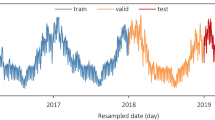Abstract
The increase of consumer end load demand is leading to a path to the smart handling of power sector utility. In recent era, the civilization has reached to such a pinnacle of technology that there is no scope of energy wastage. Consequently, questions arise on power generation sector. To prevent both electricity shortage and wastage, electrical load forecasting becomes the most convenient way out. Artificial Intelligent, Conventional and Probabilistic methods are employed in load forecasting. However the conventional and probabilistic methods are less adaptive to the acute, micro and unusual change of the demand trend. With the recent development of Artificial intelligence, machine learning has become the most popular choice due to its higher accuracy based on time, demand and trend based feature extractions. Even though machine learning based models have got the potential, most of the contemporary research works lack in precise and factual feature extractions which results in lower accuracy and higher convergence time. Thus the proposed model takes into account the extensive features derived from both long and short time lag based auto-correlation. Also, for an accurate prediction from these extracted features two Extreme Gradient Boosting (XGBoost) Regression based models: (i) PredXGBR-1 and (ii) PredXGBR-2 have been proposed with definite short time lag feature to predict hourly load demand. The proposed model is validated with five different historical data record of various zonal area over a twenty years of-2 time span. The average accuracy \((R^2\)) of PredXGBR-1 and PredXGBR-2 are 61.721% and 99.0982% with an average MAPE (error) of 8.095% and 0.9101% respectively.
Access this chapter
Tax calculation will be finalised at checkout
Purchases are for personal use only
Similar content being viewed by others
References
Saqib N, Haque KF, Zabin R, Preonto SN (2019) Analysis of grid integrated PV system as home RES with net metering scheme. In: 2019 international conference on robotics, electrical and signal processing techniques (ICREST), pp 395–399. https://doi.org/10.1109/ICREST.2019.8644098
Singh AK, Khatoon S, Muazzam M, Chaturvedi D et al (2012) Load forecasting techniques and methodologies: a review. In: 2012 2nd international conference on power, control and embedded systems. IEEE, pp 1–10
Lusis P, Khalilpour KR, Andrew L, Liebman A (2017) Short-term residential load forecasting: impact of calendar effects and forecast granularity. Appl Energy 205:654–669
Zhang L, Wen J, Li Y, Chen J, Ye Y, Fu Y, Livingood W (2021) A review of machine learning in building load prediction. Appl Energy 285:116452
Haque KF, Zabin R, Yelamarthi K, Yanambaka P, Abdelgawad A (2020) An IoT based efficient waste collection system with smart bins. In: 2020 IEEE 6th world forum on internet of things (WF-IoT), pp 1–5. https://doi.org/10.1109/WF-IoT48130.2020.9221251
Chen K, Chen K, Wang Q, He Z, Hu J, He J (2018) Short-term load forecasting with deep residual networks. IEEE Trans Smart Grid 10(4):3943–3952
Aly HH (2020) A proposed intelligent short-term load forecasting hybrid models of ANN, WNN and KF based on clustering techniques for smart grid. Electr Power Syst Res 182:106191
Singh S, Hussain S, Bazaz MA (2017) Short term load forecasting using artificial neural network. In: 2017 fourth international conference on image information processing (ICIIP). IEEE, pp 1–5
Marino DL, Amarasinghe K, Manic M (2016) Building energy load forecasting using deep neural networks. In: IECON 2016-42nd annual conference of the IEEE Industrial Electronics Society. IEEE, pp 7046–7051
Ageng D, Huang CY, Cheng RG (2021) A short-term household load forecasting framework using LSTM and data preparation. IEEE Access 9:167911–167919
Bashir T, Haoyong C, Tahir MF, Liqiang Z (2022) Short term electricity load forecasting using hybrid prophet-LSTM model optimized by BPNN. Energy Rep 8:1678–1686
Yang J, Zhang X, Bao Y (2021) Short-term load forecasting of central China based on DPSO-LSTM. In: 2021 IEEE 4th international electrical and energy conference (CIEEC). IEEE, pp. 1–5
Amarasinghe K, Marino DL, Manic M (2017) Deep neural networks for energy load forecasting. In: 2017 IEEE 26th international symposium on industrial electronics (ISIE). IEEE, pp 1483–1488
Alhussein M, Aurangzeb K, Haider SI (2020) Hybrid CNN-LSTM model for short-term individual household load forecasting. IEEE Access 8:180544–180557
Wang Y, Sun S, Chen X, Zeng X, Kong Y, Chen J, Guo Y, Wang T (2021) Short-term load forecasting of industrial customers based on SVMD and XGBoost. Int J Electr Power Energy Syst 129:106830
Zheng H, Yuan J, Chen L (2017) Short-term load forecasting using EMD-LSTM neural networks with a XGBoost algorithm for feature importance evaluation. Energies 10(8). https://www.mdpi.com/1996-1073/10/8/1168
Chen T, Guestrin C (2016) XGBoost: a scalable tree boosting system. In: Proceedings of the 22nd ACM SIGKDD international conference on knowledge discovery and data mining, pp 785–794
Loh WY (2011) Classification and regression trees. Wiley Interdisc Rev Data Min Knowl Discov 1(1):14–23
Author information
Authors and Affiliations
Corresponding author
Editor information
Editors and Affiliations
Rights and permissions
Copyright information
© 2023 The Author(s), under exclusive license to Springer Nature Singapore Pte Ltd.
About this paper
Cite this paper
Zabin, R., Barua, L., Ahmed, T. (2023). PredXGBR: A Machine Learning Based Short-Term Electrical Load Forecasting Architecture. In: Ahmad, M., Uddin, M.S., Jang, Y.M. (eds) Proceedings of International Conference on Information and Communication Technology for Development. Studies in Autonomic, Data-driven and Industrial Computing. Springer, Singapore. https://doi.org/10.1007/978-981-19-7528-8_42
Download citation
DOI: https://doi.org/10.1007/978-981-19-7528-8_42
Published:
Publisher Name: Springer, Singapore
Print ISBN: 978-981-19-7527-1
Online ISBN: 978-981-19-7528-8
eBook Packages: Intelligent Technologies and RoboticsIntelligent Technologies and Robotics (R0)




